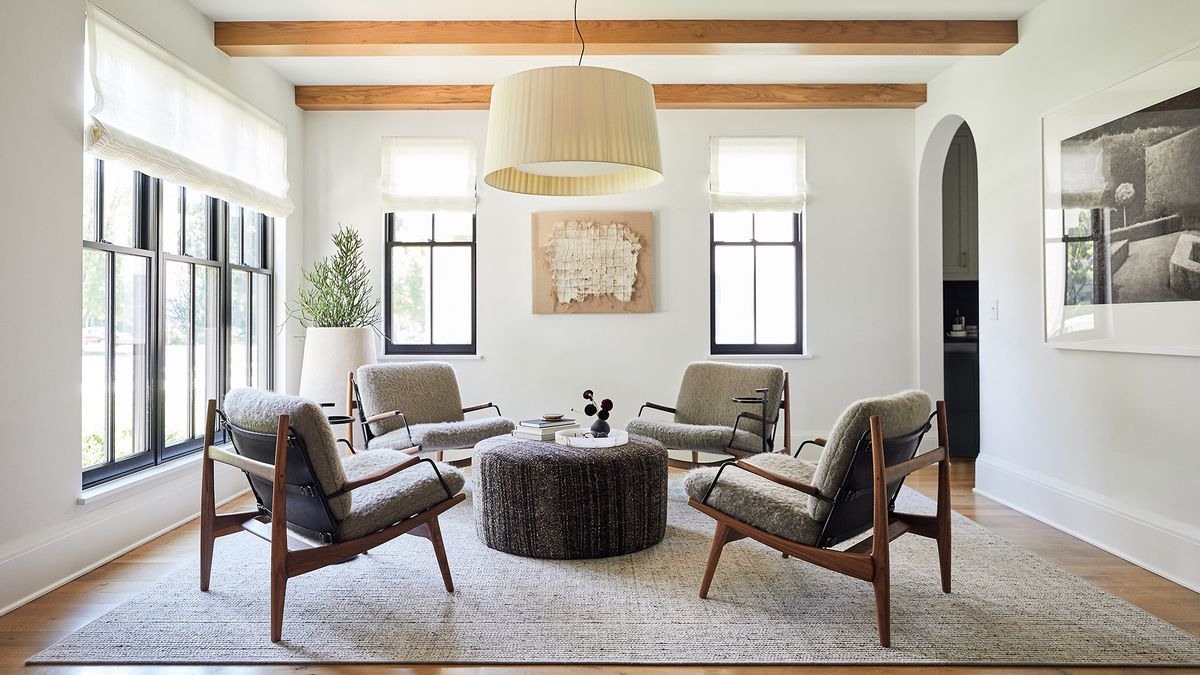All presidential families leave their mark on the White House, although they don’t know how long their design changes will stay in place. This 26th edition of the official guide — published by the White House Historical Association, which funds much of the refurbishing — was released July 28, the birthday of former first lady Jacqueline Kennedy. She nurtured the idea of the White House as a living museum and conceived the guidebook in 1962 to give visitors a comprehensive reference guide to it.
This edition includes images of rooms from a number of administrations, such as Laura Bush’s redo of the Lincoln Bedroom with designer Ken Blasingame and the Treaty Room decorated by Michael S. Smith for the Obamas. It also includes foldout pages of the Green, Blue and Red Rooms, comments by 12 first ladies about living in the historic spaces, and a first look at several second-floor rooms decorated during the Trump era.
While Melania Trump’s preservation efforts in the historic public rooms, such as the Blue Room and Red Room, and her redo of the iconic Rose Garden were well documented in the press, she and Kannalikham remained mum about what they did upstairs.
Although the rooms were photographed last fall during the Biden administration, the images of the Yellow Oval Room and the Center Hall upstairs reflect design work done under the Trumps, Kannalikham’s office confirmed. The Center Hall, which runs across the length of the house, is lined with artworks.
The Yellow Oval room, where the president holds small receptions and greets guests of honor before State Dinners, appears to have a mix of antiques from the White House collections, along with heavier fringed sofas with lots of pillows and new swagged curtains. A custom rug was woven for the large room. According to Stewart D. McLaurin, president of the White House Historical Association, “The rug is an American-made rug we funded to go in this space. Mrs. Trump was very involved in the style and design of this rug, which includes roses, blue ribbons and a yellow border and trellis motif that goes around the perimeter of the rug.”
Betty Monkman, former White House curator, also spotted 18th-century French tables that were acquired during the Kennedy administration and gilded candelabra that were a gift from Britain. “I think the room still retains an elegance about it,” Monkman says.
The Queens’ Bedroom, one of two principal guest suites for important visitors, was totally reimagined by Melania Trump and Kannalikham. The formerly deep salmon walls are now a much paler shade, and there is a light rug with a floral border. A gilded bed with elaborate hangings replaces the four-poster carved wood bed thought to have belonged to Andrew Jackson, which had been in the room for decades.
“I don’t recognize that new bed from the White House collection,” Monkman says. “The hangings have a sort of French look, and if you look at old photos of Jackie Kennedy’s bedroom at the White House it has this sort of French crown with similar hangings. Taking away the heavy four poster bed gives the room a lighter, more feminine look.”
In an email, Kannalikham did not share details about the furnishings used in the upstairs rooms, but had this to say about the project.
“With designing the interiors, whether it was the public rooms or the private quarters, first lady Melania Trump and I had a very similar vision with the goal of incorporating design elements that conveyed ultimate respect for the house and what it stands for. We worked closely on every aspect, putting a great deal of time and effort into the research and careful consideration into the final selections. In each decision, I was conscious of how important it was to the overall impact on the legacy of the People’s House.”
She continued, “We were also very focused on creating interiors that conveyed a feminine strength, incorporating softer colors such as muted pinks, creams and soft blues with Classical structure to highlight this. It was important that the design honored the legacy of all First Ladies and the strength of American women. Delicate floral details included in the redesigning of the rug in the Yellow Oval Room is an example of how that idea was incorporated into the interiors.”
The guidebook ($22.95) is continually updated and sold through the White House Historical Association, a private nonprofit that funds the majority of conservation work, preservation and acquisition of new items at the executive mansion. It offers a room-by-room tour of the interiors and a walking tour of the exterior. Sometimes it includes photographs of a room from several administrations to show how its style and use has changed. In the front, there is a letter from the current first lady. New editions are published when there is a new administration, or when something significant is restored or acquired by the White House, according to Marcia Anderson, chief publishing officer of the White House Historical Association.
A photograph of President Biden’s Oval Office also is included in the guidebook. Although the Bidens have not officially selected a White House decorator, last February, Jill Biden named Mark D. Sikes to be the designer of her East Wing office. The first lady’s office confirmed Thursday that the design has been completed. But it would not comment on if or how the Bidens have changed the upstairs rooms or on any current decorating projects. McLaurin says the association has worked on White House refurbishment projects with Jill Biden and the White House curator and that the first lady “is quite interested in doing work on the house.”
“Room by room, in marble mantels and timeless portraits, in the glint of crystal and the drape of curtains, the White House tells a story of America’s history,” wrote Jill Biden in her introduction for this guidebook. “As an educator, I hope this book will inspire your curiosity to learn more about the Presidents and First Families.”


